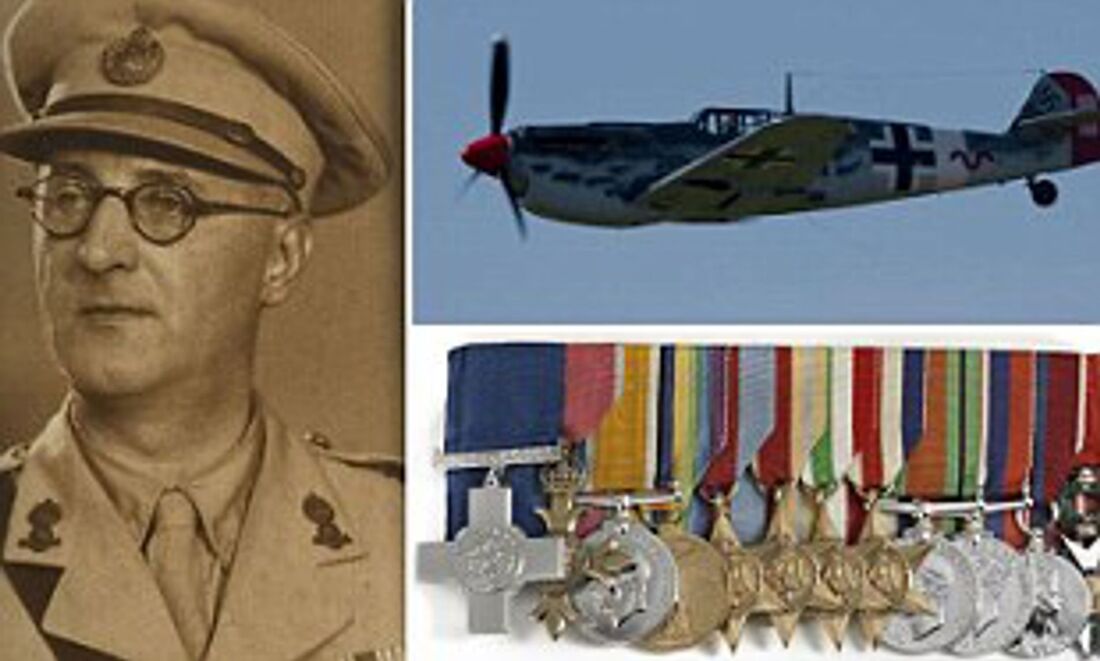Dr Arthur Douglas Merriman GC, OBE, DL, FRSE was born on 25th November 1892 in South Manchester, to parents Harry and Elizabeth Merriman.
He enlisted with the Royal Army Ordnance Corps in WWI but only saw action in France for the last few months of the war, arriving on the Front on 3rd April 1918. After the War, he worked as a teacher and academic including the post of Principal of the County Technical School, Wallsend on Tyne from 1926-1938. He then went to work as Administrative Secretary to the Faculty of Architects and Surveyors but on the outbreak of WWII, he was called to serve as Assistant Director Bomb Disposal with C-in-C, Middle East with the Directorate of Scientific Research, Ministry of Supply early in 1939.
On 11th September 1940, he was serving as a part time experimental officer in the Directorate of Scientific Research when he was called to a bomb that had landed in Regents Street. Together with Dr H.J. Gough and Captain Kennedy, he used a new device to steam out the explosive from the bomb. The bomb was ticking and it was decided that all they could do was get as much explosive out as possible before it went off. Their timing was perfect; they went on working until the very last minute. The bomb exploded 4 hours later, but the explosion only caused some broken windows. He was only supposed to be part time with office duties but got called out to a bomb.
He was awarded the George Cross (LG 3rd December 1940), and from 1941 to 1944 he was Scientific Advisor to the Commander-in-Chief, Middle East, and in 1944 was awarded the OBE for his services.
He left the service in 1945 with the rank of Colonel, Royal Engineers, and then became the Principal Scientific Officer (Technical Intelligence) at the Armaments Design Department, Ministry of Supply. He was a prolific writer and published 16 books on such diverse subjects as “The Night Sky” and “A Concise Encyclopaedia of Metallurgy” and many academic papers. In 1948, he was appointed to the first full-time post of Registrar-Secretary of the Institution of Metallurgists, which he held until 1957.
Merriman died on 4th November 1972 in Streatham- he lived at 59, Streatham Close, Leigham Crt Road, and was buried in Streatham Park Cemetery.
Source :The comprehensive Guide to the Victoria and George Cross and London Gazette 16th Dec. 1955 (7073)

